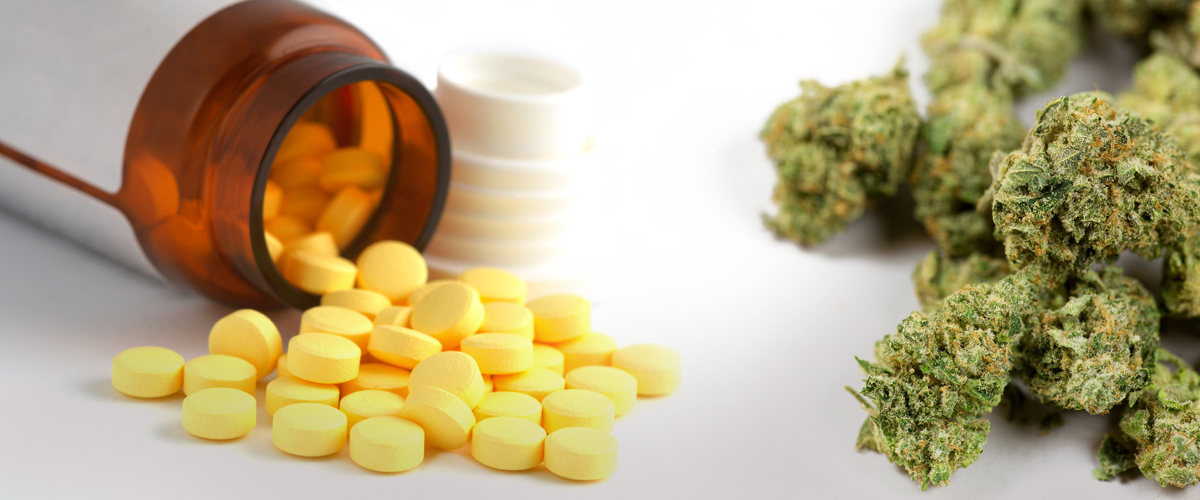With cannabis, cancer patients were able to reduce their intake of opioids and still effectively manage their pain.
Cannabis can help cancer patients effectively manage their pain and reduce their risk of opioid dependency, according to a new study published in the European Journal of Internal Medicine.
Researchers from Tikun Olam, Israel’s largest medical marijuana provider, investigated the efficacy of cannabis for cancer patients and found that its benefits for managing pain also included a reduction or elimination of opioid use.
“Cannabis is a very good alternative to reduce opioid consumption, to increase quality of life, and to reduce pain, nausea and vomiting,” said Lihi Bar-Lev Schleider, lead researcher on the study.
At the beginning, more than 1,000 of the patients regularly consumed nearly 4,000 medications and opioids were the most widely used drug. By the end of the six-month study, 10 percent of cancer patients reduced their intake of opioids and 36 percent stopped taking opioids altogether.
“Cannabis is not magic,” said Schleider. “But for some patients, in one treatment, we target many symptoms and on top of all that we reduced the number of medications they were taking.”
To investigate cannabis’ impact on pain and symptoms of cancer, Schleider and her colleagues used data provided by Tikun Olam’s 2,970 cancer patients. Medical marijuana is currently legal in Israel, and patients are able to sign up with one of the country’s eight cannabis companies and pay a monthly fee of about 370 shekels ($100 U.S. dollars).
Part of the program’s requirements is to participate in mandatory questionnaires. This means that rather than rely on voluntary patients, the Tikun Olam study included the responded from everybody taking cannabis for cancer.
“Cannabis surveys usually rely on answers from willing patients, only patients who want to answer the questionnaire because they experienced improvement in their conditions,” Schleider added.
Of the 1,211 cancer patients that completed the six months of medical marijuana treatments, 95.5 percent “reported an improvement in their condition.” Only 3.7 percent reported no change and 0.3 percent reported deterioration in their medical condition.
“If you look at this study and you’re a doctor and your patients are suffering with opioids, you’d be hard pressed not to give them cannabis,” said Sid Taubenfeld, CEO of Tikun Olam. “The same for steroids, or any sleep medication. You see the quality of life was so staggering that you should consider cannabis.”
You can get access the entire study, “Prospective analysis of safety and efficacy of medical cannabis in large unselected population of patients with cancer,” through the European Journal of Internal Medicine.

Medical Marijuana’s Role in the Opioid Abuse Solution
The study’s findings aren’t the first to indicate that medical marijuana can play an important role in dealing with the ongoing opioid epidemic. Just recently, researchers from the University of New Mexico found that medical marijuana legalization caused a reduction in opioid use among chronic pain patients.
With nearly 100 Americans dying from opioid overdoses every day, medical professionals and government officials are examining potential solutions for addressing the epidemic. Despite evidence suggesting that cannabis can serve as a safer alternative than opioids for treating pain, the White House committee tasked with finding solutions recently refused to acknowledge medical marijuana as an option.
While marijuana remains illegal under federal law, 29 states have legalized its use. Unlike opioids, marijuana carries no risk of fatal overdose, and a recent survey found that more than 9 of 10 pain patients prefer cannabis to opioids.
You can learn even more about the evidence suggesting that cannabis can possibly solve the opioid crisis in American HERE.
Keep up with the latest cannabis research through our news page.






